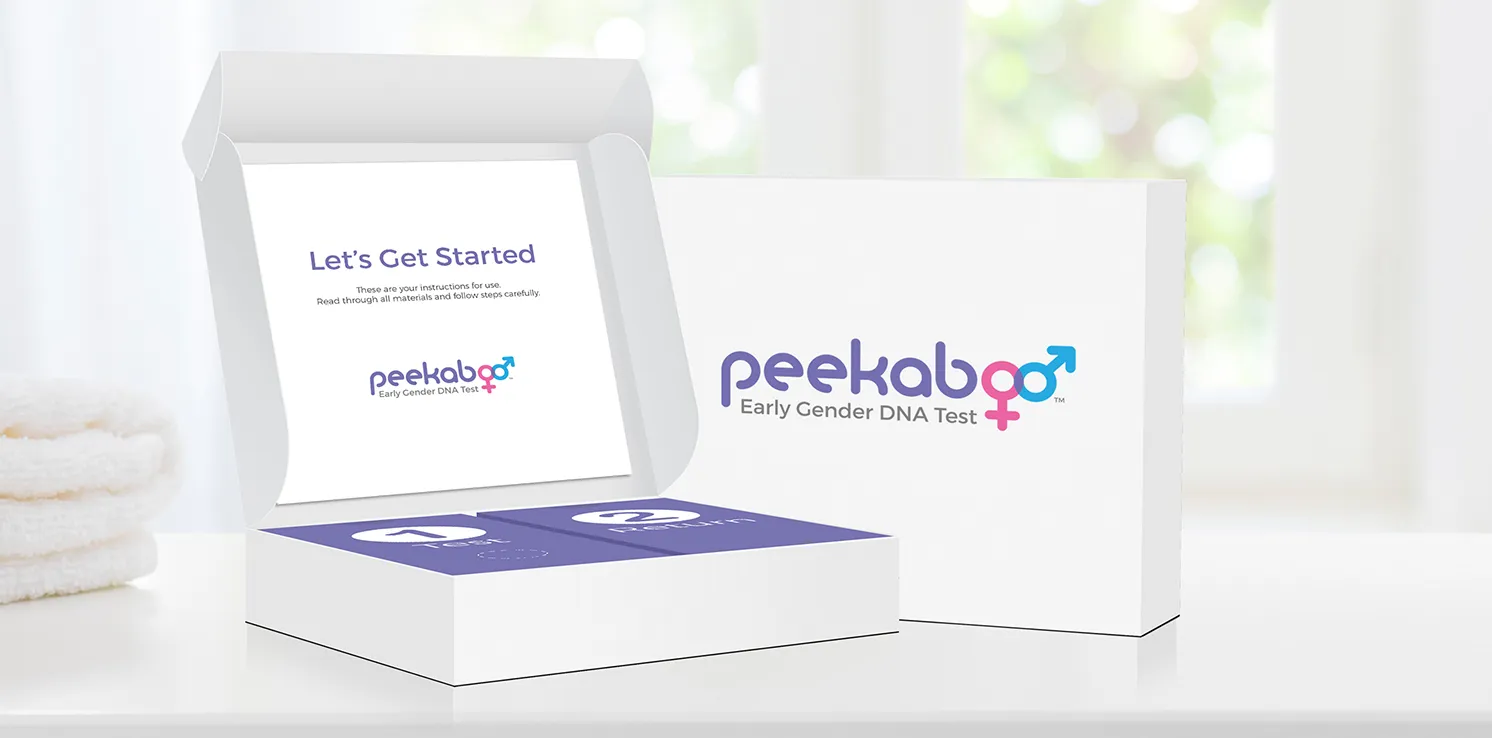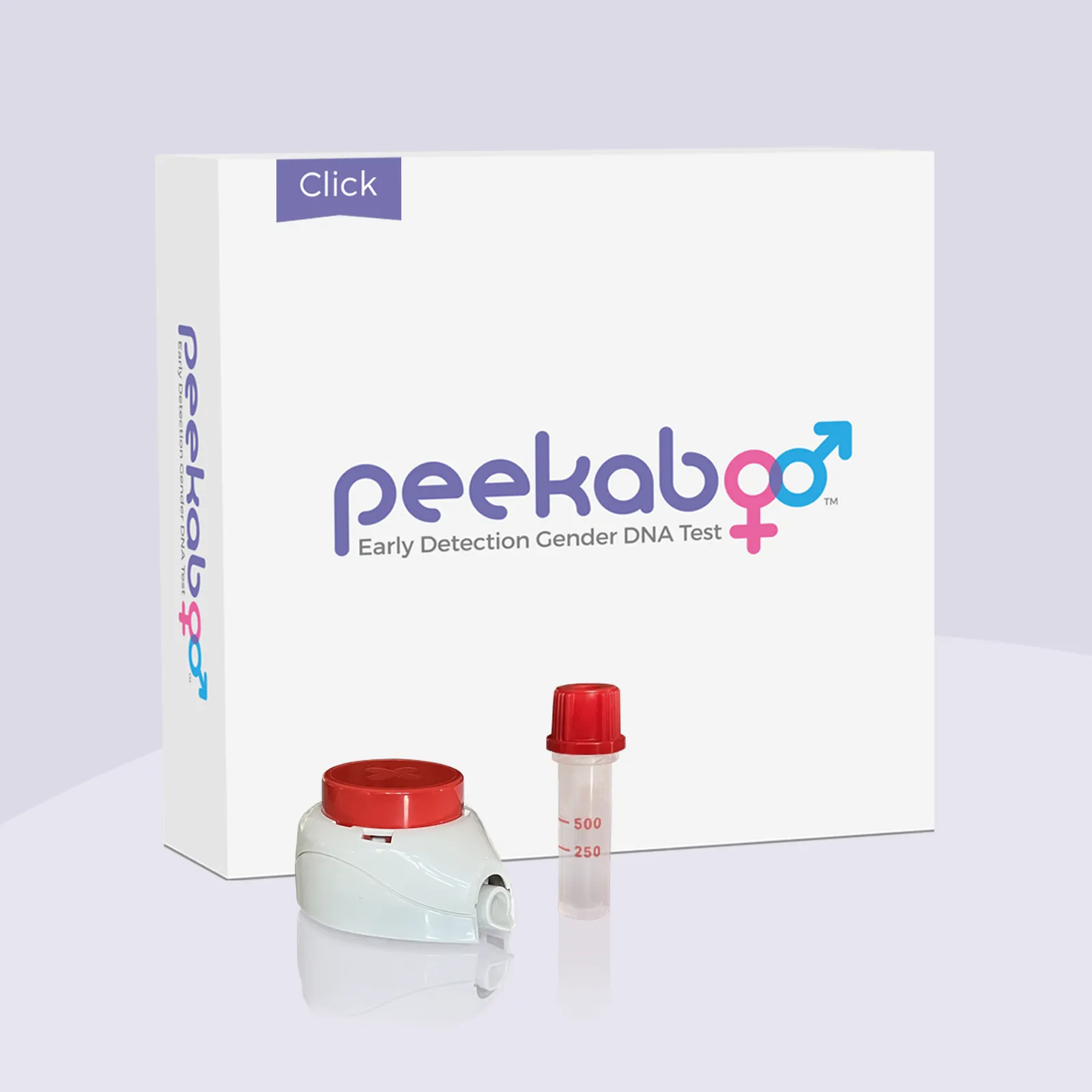Many soon-to-be parents are eager to learn how soon they can determine their baby’s gender during pregnancy. One 2012 study published in the journal Obstetrics and Gynecology revealed that approximately 70 percent of parents want to know their baby’s gender before birth. Couples rely on gender prediction tests for many reasons, such as facilitating gender reveal parties, announcing the news to loved ones, and simplifying nursery decoration.
Be Weary of Online Gender Prediction Tests
As an expectant parent, you’ve probably heard many different baby predictor myths or have seen web pages claiming to offer a 100 percent accurate baby gender predictor online. While wives’ tales, folklore, and maternal intuition provide an exciting outlet as you count down the days, studies have proven these non-scientific methods are no better at predicting your baby’s gender than flipping a coin.
Luckily, remarkable strides have been made in gender prediction testing, providing parents-to-be with highly reliable, safe, and evidence-based methods to determine their baby’s sex.
The Groundbreaking Peekaboo Gender Prediction Test
This innovative home test improves your pregnancy journey by eliminating at least one uncertainty. With the Peekaboo Early Gender DNA Test, you can find out the gender of your baby just six weeks into pregnancy. Peekaboo is the most accurate early baby gender reveal test available since it leverages a highly exacting scientific approach to determine if you’re having a boy or girl.
The Different Types of Gender Testing
Many different types of tests can determine your baby’s gender, including:
Ultrasound
Although invented in late 1950s Scotland, ultrasounds were not used widely in U.S. hospitals until the 1970s. Before the 14th week of pregnancy, a baby’s sex organs are largely indistinguishable, rendering ultrasound evaluations inconclusive in determining gender. However, studies suggest that by 18–20 weeks, ultrasound assessments achieve a near 100% accuracy rate in predicting fetal gender.
Amniocentesis
Typically performed at 15–20 weeks of pregnancy, amniocentesis testing involves removing amniotic fluid from the uterus and using that sample to test for genetic conditions and chromosomal abnormalities. The most common reason for amniocentesis testing is due to a “high risk” result from a first-trimester screening test or a prior pregnancy impacted by a genetic condition. Because the procedure is highly invasive and may cause miscarriage, doctors do not perform it solely to determine gender.
Chorionic Villus Sampling (CVS)
Chorionic villus sampling (CVS) was initially integrated into clinical protocols during the early 1980s, serving diagnostic purposes similar to amniocentesis, including the capability to determine fetal gender. Often conducted between 10 and 13 weeks of gestation, CVS involves the extraction of fluid from placental cells. However, given associated risks similar to amniocentesis, CVS is also not solely administered as a gender prediction test.
Cell-Free Fetal DNA
Cell-free fetal DNA testing (The Peekaboo Gender DNA Testing) is a relatively recent advancement in prenatal diagnostics. This non-invasive method involves analyzing fragments of fetal DNA that circulate freely in the mother’s blood. The test can detect the presence of a male Y chromosome, allowing analysts to accurately determine a baby’s gender. This test can be performed as early as six weeks into pregnancy and is known for its high accuracy in determining fetal gender, often exceeding 99%.
Simple, Safe, and Accurate Gender Testing at Home
With a small blood sample, you can now determine if pink or blue is in your future with 99.5% accuracy! Peekaboo is easy, affordable, and the most accurate gender prediction test at home. That’s why it’s the only early baby gender reveal test endorsed by the American Pregnancy Association. Revealing your little one’s gender can be one of the most exciting moments in your pregnancy — why not rely on the best technology science has to offer?
Ready to discover your baby’s gender?
Get the Peekaboo At-Home Early Gender DNA Test, proven to be over 99% accurate, and discover your baby’s gender as early as 6 weeks from the comfort of home!


